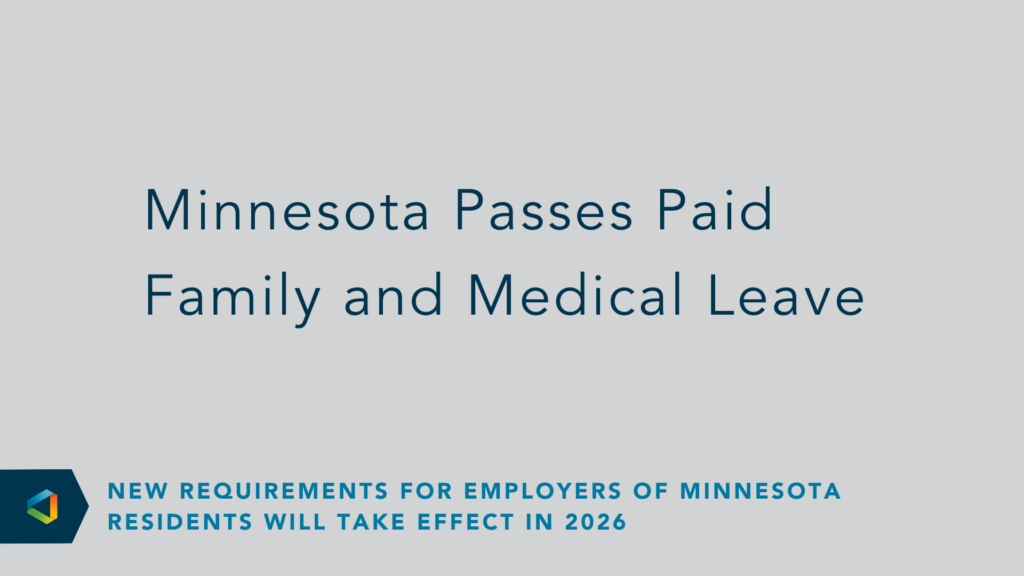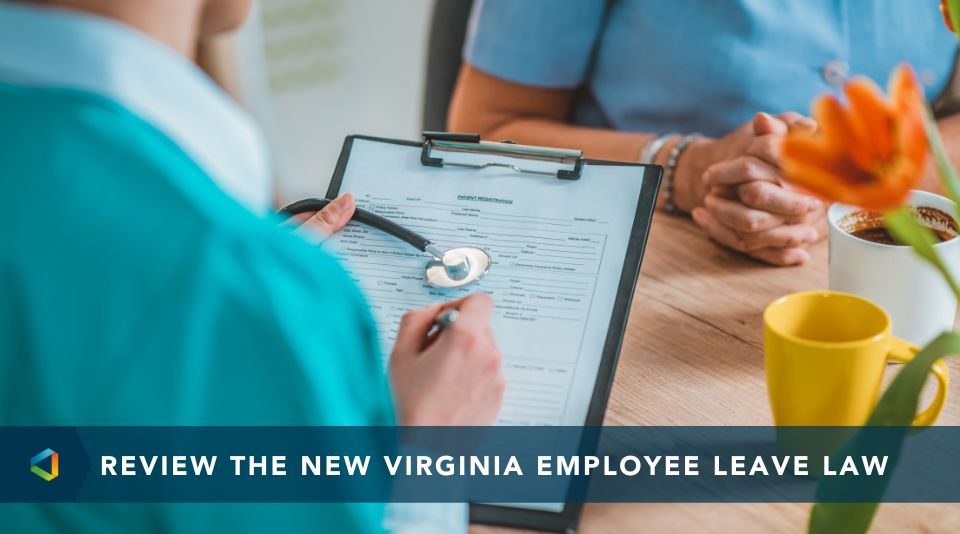Compliance Confidence
Delaware Passes Paid Family and Medical Leave
Delaware Passes Paid Family and Medical Leave
Delaware became the latest state to pass a paid family and medical leave law, titled the Health Delaware Families Act (Act).
The Act, signed into law on May 10, 2022, allows qualified employees to take up to 12 weeks of leave beginning in 2026.
What employers are covered?
Employers with at least 10 employees in Delaware must comply with the Act. The only exceptions are businesses that are closed for 30 or more consecutive days per year and the federal government. Employers with at least 10 but less than 25 employees are only required to provide parental leave. Employers with 25 or more employees must provide all the given reasons for leave under the Act.
Who is an eligible employee?
An employee is eligible to take paid leave if they have been employed with an employer for more than 12 months and have worked at least 1,250 hours during the previous 12 months. Employees taking leave under the Act are entitled to be restored to their position, or a similar position with equivalent seniority, pay and benefits, when they return from leave. Health insurance must also be maintained while the employee is on leave. The Act is similar to the federal Family and Medical Leave Act (FMLA), however one key distinction is the leave is paid.
When can an employee take leave?
The Act divides leave into three categories: parental, family caregiving, and medical.
- Parental leave is when the eligible employee is caring for a child during the first year after the birth, adoption, or placement of the child.
- Family caregiving leave allows the eligible employee to take leave to care for a family member with a serious health condition or to take leave because they have a qualifying exigency. The definition of a qualifying exigency under the Act mirrors the rules under the FMLA. As under the FMLA, the Act also defines “family member” as a parent, child, and spouse.
- Medical leave allows an eligible employee to take leave if they have a serious health condition that renders them unable to perform their job duties.
How long can leave last?
Another notable difference between the Act and FMLA is the amount of leave entitlement. Under the Act, the maximum leave in an application year is 12 weeks. However, depending on the type of leave, it could be less. For employers with 25 or more employees, an eligible employee can use leave in any of the three leave categories but is limited to a maximum of 12 weeks of paid leave per year. However, if an employee takes family caregiving leave and/or medical leave, the maximum amount of leave allowed during a 24-month period is 6 weeks. If an employee takes parental leave, the maximum amount of leave allowed during a 12-month period is 12 weeks.
Employers should note that under the FMLA, eligible employees may take up to 12 weeks of unpaid leave (26 weeks for military caregiver leave); so eligible employees who qualify under both the Act and the FMLA may still be able to take unpaid FMLA leave up to the respective maximums.
How is the program funded?
There is some time before funding for the program will begin. Covered employers must begin contributing and deducting employee contributions starting on January 1, 2025. For 2025 and 2026, the contribution rates are:
- 0.32% for parental leave
- 0.08% for family caregiving leave
- 0.4% for medical leave
Employers can deduct up to 50% of the contribution required for each employee but may pay more of the contribution if they choose. Contributions must be submitted quarterly. If employers do not deduct employee contributions when wages are paid, employers will be liable for the full contribution amount.
How much will employees be paid?
Employees will receive 80% of their average weekly wage rounded up to the nearest dollar during the 12 months prior to taking leave. The minimum benefit will not be less than $100 per week unless the average weekly wage is less than $100 per week. The maximum weekly benefit in 2026 and 2027 will be $900.
Can employers with private plans opt out?
Yes. Employers with private plans may seek approval from the Delaware Department of Labor to opt out of the Act. Private plans must provide benefits and leave reasons at least as generous as those in the Act in order to be approved.
While contributions are still a few years away, employers should start putting plans in place now, so they are ready to comply. There are still many outstanding questions about how the program will be run, so employers should also be on the lookout for future regulations.




